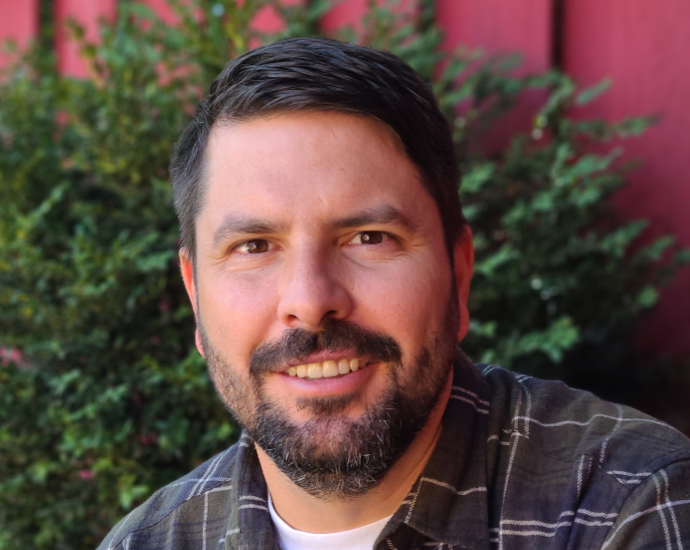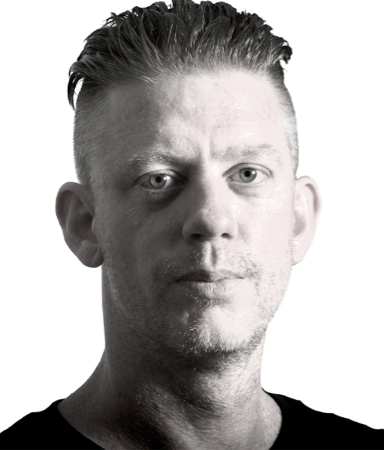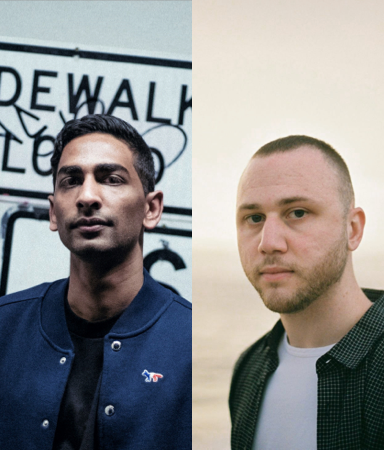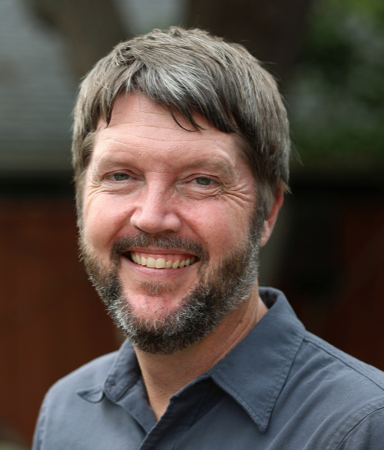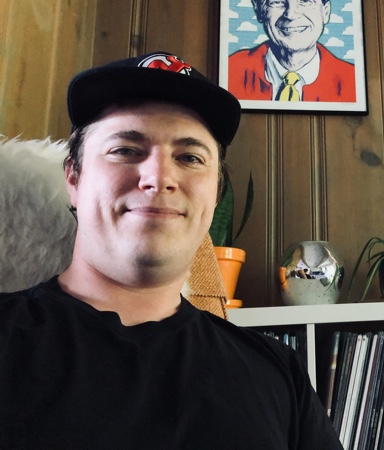Where are you based?
The Junction Triangle neighbourhood in Toronto’s West End.
Where do you work? What do you do?
I work with LyricFind, a music tech company that provides current, accurate, and fully licensed lyrics to top music platforms including ByteDance, Amazon, Google, Xperi, YouTube, Deezer, Pandora, and iHeartRadio. We have access to more than 100,000 catalogs and over 8 million song lyrics. Our distribution and monetization solutions are all about scale, innovation and sustainability. LyricFind is a leader in the sector and was the first company that created a legal licensing solution for online lyric and lyric translation display and started monetizing the online lyric market back in the early 2000s. My role involves securing funding, managing strategic projects, identifying partnership opportunities and connecting with initiatives and organizations that are aligned with our values, goals and vision. Helping LyricFind grow as a global company and leader in the music tech space requires an ability to communicate across cultures, a passion for learning and being open to new ideas, a big-picture mentality, creativity, collaboration, inspiration, patience, experimentation and other qualities I have, or want to improve, so it’s been really fun. In the past year, I have helped manage multiple projects, ranging from international cooperation and creative export initiatives like BELEM to projects focusing on Indigenous language revitalization through music like Our Peoples, Our Songs. I have been working a lot recently on the launch of LyricFind’s new not-for-profit arm, the LyricFind Foundation.
Additionally, I teach Marketing at Humber College in Toronto, as part of their excellent Arts Administration and Cultural Management graduate certificate program. I think I have learned more from the students than what I have taught them about Marketing, and I am really grateful for that.
What are you listening to?
For a long time, I’ve been trying to consciously integrate the act of listening to music in almost everything I do, so I listen to a lot of different stuff. I think in terms of musical genres/cultures, I tend to listen to a lot of electronica, ambient, classical, neoclassical and jazz. I think for artists creating in these genres, and anything in between, there’s often a fluidity and an intention to let the music breathe and flow in a way that works great for me; it expands my capacity to focus, reflect, appreciate, create. Of course, it depends on the artist and the work; there’s a lot of jazz, ambient, etc. that don’t resonate. Sometimes what I need is silence; hours, days or even weeks without music. Identifying those necessary pauses and breaks is really important for a sustainable listening experience. You need to create some space to let new music in, especially if you have been actively listening for many years.
How do you discover new music?
Inspiration and leads come from all kinds of sources: liner notes from an old LP, a documentary film, someone you met at a concert, friends, a podcast, a book … Online too, to a lesser extent for me. The saturation of content and recommendations could be really overwhelming but sometimes “the algo” delivers and you find something new and exciting, that touches something inside. It’s really exciting because once something truly resonates, I develop a relationship with the album or the song, and I know I can always go there when I feel a certain way or want to enhance an experience or activity.
What formats do you usually listen to? LP, CD, Cassette, Digital, Streaming Services? Why?
I have been listening to vinyl for the past 10 years or so. It was something I didn’t have the opportunity to experience before. I grew up in 1980s-90s Havana, listening to cassettes, then CDs and in the 2000s there was a lot of mp3 sharing. I was lucky I had an old desktop computer and I think I had a couple of mp3 players. Then I moved to Kingston, Ontario, and I did a radio show at CFRC 101.9 FM Queen’s University Campus Radio for a few years, I think between 2012 and 2016 and used CDs again from their archives. I started listening via multiple streaming services in the 2010s. Now for me it is a matter of convenience, I’m a practical person. I grew up with very limited access to music technologies and options so I appreciate I get to choose how I listen today. Of course, now that I have options, I try to prioritize audio quality and definition. Listening to vinyl with a decent sound system has delivered the most value in that sense, so far. It’s a ritual that requires more preparation, and time investment, so we tend to engage more with the experience.
“I try to prioritize audio quality and definition. Listening to vinyl with a decent sound system has delivered the most value in that sense, so far. It’s a ritual that requires more preparation, and time investment, so we tend to engage more with the experience.”
Where do you do most of your music listening?
A lot of it happens when I am working from home, it helps me focus. I also listen a lot while I am cooking, eating, working out, hanging with my family or just by myself. I usually listen to podcasts when commuting on public transit, but sometimes I listen to an album that I think would be a good soundtrack for it. I usually let my wife and son pick what we listen to when we go on a road trip in the car.
How do you find and listen to pre-release music?
Pre-release music is not a significant part of my personal or professional life these days. I do try to experience music live as much as I can so I guess I often hear songs in concerts, jams, etc. that haven’t been released yet.
What are your frustrations with listening to music digitally? Any benefits?
I think content saturation is a common concern, and also quality. Not only artistic quality because of how easy it is to release material today, but also audio quality. Audio quality suffers a lot, not only because of how much compression goes into a digital file, but because the ubiquity of the digital tends to communicate a vibe of casual listening that affects the listening experience (we listen with shitty headphones, laptop/phone speakers, etc.). It could be a fun lo-fi experience if you are using music as a background but generally speaking, you are missing a lot of what the artist wants to communicate if you don’t listen with quality. There are a lot of quality products in the digital music market, don’t always go with the cheapest/free option.
How do you keep track of everything you are listening to?
For vinyl it’s easy, I try to keep my collection small, manageable, and relevant. Everything in it is something I’d play often, no fillers. Maybe around 200-300 LPs. For digital, I don’t keep too much track, unless it is something really good I don’t have on vinyl. I just add these titles to my digital library, and hopefully one day I will find them on vinyl. I used to buy music on iTunes. Now a lot of my music spending goes into live music experiences and second comes vinyl.
Do you tip other people off to new music? How?
All the time, I love to talk about new music with my family, friends, at work, or even with total strangers in the street. Music is a great way to connect, to feel alive, to heal, to mourn, to celebrate and to share the love and appreciation for life, so I take every opportunity I get to let people know about new music that resonates. With my close friends, I go a step further and share links, articles, reviews, and opportunities to go listen to the artist perform live.
Anything you want to “promote”?
My friend Karen Dubinsky and I have been working on a project since 2020, where we interview musicians from the Cuban diaspora across Canada and the non-Cuban musicians and professionals who work with them. We have a podcast series called Cuban Serenade with some of these interviews. When you know the details, the context, the history, the scene, and the circumstances that shape the way artists make music, that changes the way you listen; you gain access to emotions and information that make the experience more meaningful. Some of these Cuban migrant artists like Hilario Duran, Alex Cuba, Alexis Baro, Luis Deniz, Rafael Zaldivar, Danae Olano, Elizabeth Rodriguez and Magdelys Savigne from OKAN, are making beautiful music that I highly recommend your readers to check out. Other outstanding artists I came across recently are Sebastian Gaskin and Ana Lía. I’ve seen Sebastian perform twice this year and both times I felt something special, warm, a sense of awareness. Ana Lía’s debut album “Cíclica” has been on repeat this last month; I love the energy, the humour, the sensitivity, and where she is coming from as an artist and a human.
